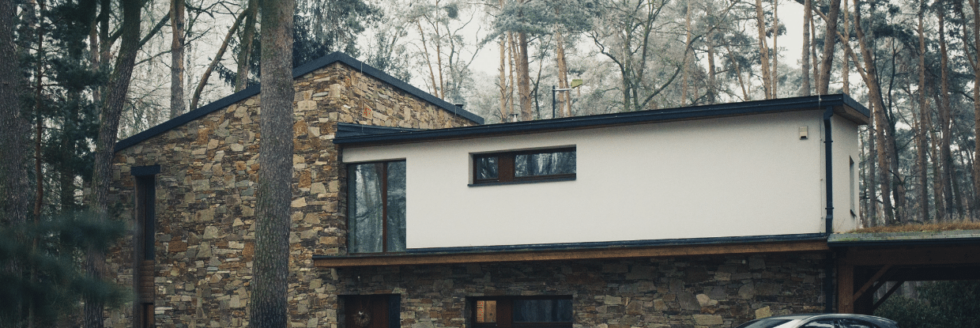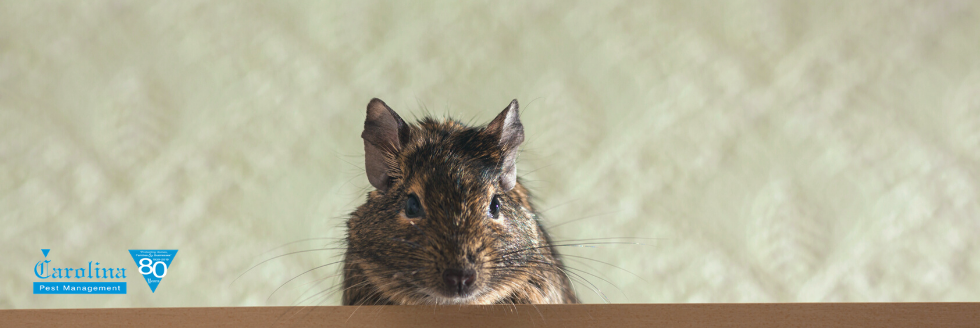Where Do Squirrels Go in the Winter?
All season long, Charlotte residents have the opportunity to watch squirrels running and hopping in the process of feeding and storing food. Oftentimes, they dig shallow holes for stashing food and cover the hole back over. It is a hoarding cycle that goes on year after year. The squirrels use the cached food resources during scarce North Carolina winters. But sometimes squirrels forget where some of their “digs” are located. This can be good for Charlotte homeowners- if they want more shrubs, trees and other vegetation randomly sprouting up in the yard! That said, don’t worry too much about unwanted plants; most of the forgotten squirrel seed caches will not germinate.
To squirrels, hoarding is all about survival. However, this is only one component of winter readiness. In fact, squirrels prep for winter in many ways, including some ways that are not so pleasant to homeowners.
Food alone is insufficient to get these furry mammals through winter. As homeotherms, squirrels enjoy a metabolic activity that enables them to maintain a fairly constant year-round body temperature- a temperature that typically exceeds the local environmental gages. Thus, they do not hibernate. Rather, they survive winters using several natural defenses against cold weather. Here are the basics:
- Winter prep is not only about caching food, but also involves aggressive fall food consumption for the purpose of maximum bulking up
- As winter closes in, foraging slows and squirrels start spending more time inside their dens
- Dens are shared, enabling squirrels to reap the benefits of shared body heat
Where do squirrels den?
Typically squirrels den in tree cavities or a leaf nest. Ground squirrels tend to build underground dens. However, if given the opportunity and the means, squirrels common to NC may well invade your home.
Squirrels – Four Species Local to North Carolina
Although the worldwide count of squirrel species numbers over 200, only four different squirrel types reside in North Carolina. Let us consider them from smallest to largest in physical size.
The Flying Squirrel
Easily identified by a cape of loose skin stretching from ankles to wrists, the flying squirrel sports a creamy white belly and lustrous gray or reddish-brown fur. Although typically not a problem for homeowners, this tree dwelling nocturnal squirrel does occasionally invade attics. Being only slightly larger than a mouse makes removal of this rodent exceedingly difficult for pest removal teams.
Red Squirrels
Around half as large as the common gray squirrel, white bellied red squirrels tend to undergo a slight color change according to the season: orange-red fur by summer and gray-red fur by winter. Red squirrel winter prep includes growing tufts of fur on the ears. As troublemakers, the persistent red squirrel defines the meaning of property damage, including damage to birdhouses, out buildings and homes.
Eastern Gray or Sometimes “Grey” Squirrels
Common to every county in North Carolina and around twice the size of red squirrels, the gray squirrel carries the official title of State Mammal. These rodents are day creatures, typically unafraid of humans, and prone to raiding trashcans, bird feeders and any other nearby food source.
The gray squirrel baby season comes twice a year. An in-home attic infestation of gray squirrels can mean great burdens for Charlotte homeowners. Rodents imprint from birth. This means that frigid weather or a need to establish a nursery will bring this problem back year after year and baby season after baby season.
Southeastern Fox Squirrel
This one wins the trophy for size. Ranging 17-27 inches long, the Southeastern fox squirrel claims two diverse color groups:
- Fur in gray to black shades with gold to tan bellies, with an offset of white on the ears, feet and nose
- Reddish fur that ranges from orange to tan
Due to size, this squirrel is not likely to wiggle into your Charlotte home.
Squirrels – Humane Removal
Perhaps you are already battling a Charlotte squirrel infestation in your home or yard. Unless properly equipped for the job, home critter control can be extremely difficult. The team at Carolina Pest can save you time, money and energy. We use humane techniques in critter removal and prevention. Be it raccoons, rats or squirrels, Carolina Pest has the best environmentally safe solution. Click here for more info on Carolina Pest critter control.


